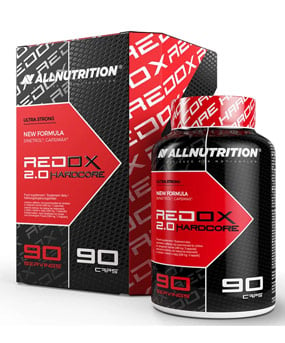
"NUTRITIONAL SUPPLEMENTS: SEPARATING FACT FROM FICTION
"Burns fat while you sleep!" "Ensures optimal performance!" "A legal anabolic steroid!" "Specially formulated for the new millennium!" "New super grapefruit pills really do boost weight loss!" If any of these slogans sound familiar it is because nutrition and health fraud is more prevalent today than it has ever been. The unbelievable health claims associated with the use of most nutritional supplements are just that - unbelievable! If claims about nutritional supplements sound too good to be true, it's because they are!
As athletes push their bodies to lose that last ounce of fat, or gain one more pound of muscle, or lift as much as possible, or run a split second faster, or . . . well, you get the idea. As athletes strive to be, and do, their best, the advertisements for some nutritional supplements become very appealing. Generally, the products aimed at catching an athlete's eyes are promoted as "energy enhancers," "fatigue fighters," "muscle builders," and "fat burners." Fortunately, athletes eating a balanced, healthy diet don't require any of these products to be a good athlete. Unfortunately, many athletes believe they do.
The world of nutritional supplements is definitely a "buyer beware" market. Athletes, coaches, and parents must realize that nutritional supplements are unregulated. When reading the claims made about any nutritional supplement remember, the following four tips:
1) Supplement manufacturers do not have to prove their products work!
2) Supplement manufacturers do not have to prove their products are safe!
3) Supplement manufacturers can put health claims on their product labels, and,
4) Supplements do not have to be manufactured according to any quality standards.
Athletes spend large amounts of money each year on nutritional supplements that have no scientific research to support their claims. Manufacturers of nutritional supplements can make any claim in advertising their products provided they do not claim to sure disease or print false claims on the label of the container. An investigation conducted by the New York Department of Consumer Affairs showed nutritional supplement manufacturers contacted during the investigation were not able to provide a single study from a scientific journal to support the claims made about their products!
The following points may assist athletes, coaches, and parents in determining whether claims made about nutritional supplements are legitimate:
1) Are the results of the scientific research performed printed in reputable scientific journals, such as the Journal of the American Medical Association, Journal of the American Dietetic Association, or the New England Journal of Medicine? If not, it is very possible there is something about the research that the manufacturer doesn't want the general public to know. Unpublished research claims are often based on research that has never been performed or on flawed research studies that are not supported by fellow scientists. It very common for the results of legitimate research conducted by someone else to be used out of context by supplement manufacturers. Statements claiming that "current research is being conducted" or that "research is not for public review" should be taken with a great deal of skepticism.
2) Have the benefits of the supplement been reported on a wide scale basis by the news media? Claims based on solid scientific research are generally front page news and become public knowledge quickly. If a product has a "secret formula" that is not known to the general scientific community be very skeptical! Likewise, if the manufacturer claims the scientific community is involved in a conspiracy to prevent them from publishing their findings, be very skeptical. The purity, safety, and side effects of these "miracle" products are simply not known. Placing an advertisement in newspapers and magazines, or writing an editorial regarding a supplement is not on a par with news about research that becomes front page news.
3) Is the product being advertised primarily by the use of testimonials? If so, one needs to ask if the person giving the testimonial is endorsing the product because of its effectiveness or because of the money they are receiving from the manufacturer. In recent years many professional athletes and/or teams have had their names used in conjunction with certain products without the athlete's and/or team's consent or knowledge! This is not legal or ethical on the part of the manufacturer, but until the endorsement is challenged in court it can mean big profits for the manufacturer.
4) Do advertisements for the product call for taking more than 100% of the RDA (Recommended Dietary Allowance)? More is not always better! While vitamins and minerals are essential to good health and athletic performance, they are required in very small amounts. Most vitamins, and some minerals, act as coenzymes which means they activate enzymes that are responsible for the various chemical reactions that take place in the body. Increasing one's consumption of vitamins and minerals is immaterial if the consumption of enzymes is not also increased. The body's best and most usable source of enzymes is food!
5) Do advertisements recommend eating a healthy, balanced diet or to use their supplement to avoid the "hazards" of eating food? The best nutrition always comes from a healthy, balanced diet! Many nutritional supplements touted as weight loss products suggest a person should drastically reduce their food intake and use the supplement instead. This is neither healthy nor economical.
When determining if claims made about nutrition practices and nutritional supplements are credible consider the following:
1) does the information provided encourage lifelong, gradual changes or promise fast, drastic results?,
2) does the information promote eating a healthy, balanced diet?,
3) is the information provided factual and specific, rather than vague and playing one's emotions?,
4) is the information provided based on scientific evidence that can be easily referenced?,
5) does the literature seem to agree with most recommendations from other scientific and medical professionals?, and,
6) is the author of the literature a Registered Dietitian with a degree in nutrition from a college or university and are they a member of a reputable nutrition organization? Reputable nutrition organizations include, but are not limited to, National Institutes for Health, American Dietetic Association, Society for Nutrition Education, United States Dairy Association, and the National Heart, Lung, and Blood Institute.
If you are skeptical of the claims made about nutritional supplements there are several sources where you can obtain legitimate information. Seeking advice from a local registered dietitian will provide you with general information and they may very well have available detailed information about many products. If you do not know a Registered Dietitian in your area you can call the American Dietetic Association at 1-800-366-1655 and they will provide you with a list of names. The American Dietetic Association web site is <eatright.org>.
The National Council Against Health Fraud, Inc. has a resource center containing materials on a large variety of nutrition topics. Their address is The National Council Against Health Fraud, Inc., Resources Center, 3521 Broadway, Kansas City, MO 64111. Their web site is <www.ncahf.org/>. ".
Ostatnie zdanie dla młodych.
"Remember, manufacturers doing a "hard sell" on nutritional supplements are appealing to your emotions, not your sense of logic. A healthy, balanced diet is always the best way to ensure your body receives the nutrients it needs."
Musicie od siebie wymagać ,nawet gdyby inni od was nie wymagali.
http://www.sfd.pl/temat254819/
Najgorsze smaki supli
http://www.sfd.pl/temat258906/





 Krzysztof Piekarz
Krzysztof Piekarz






